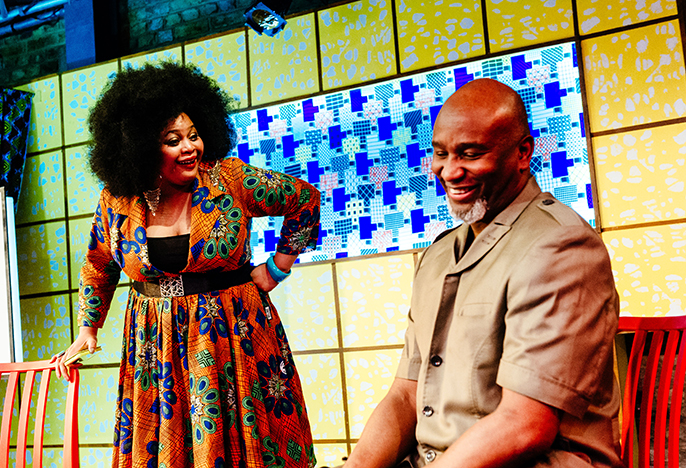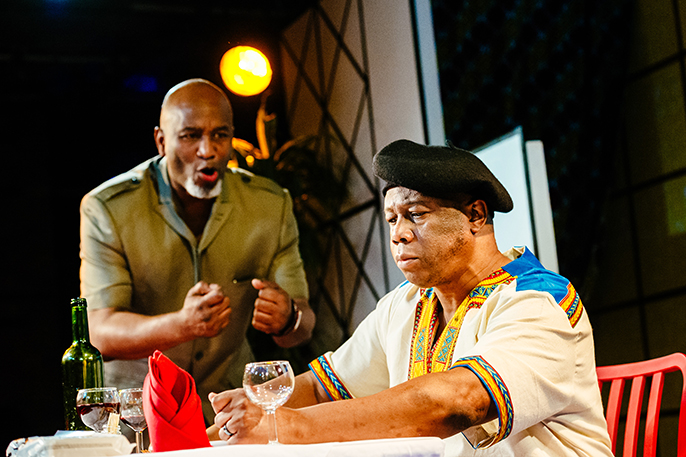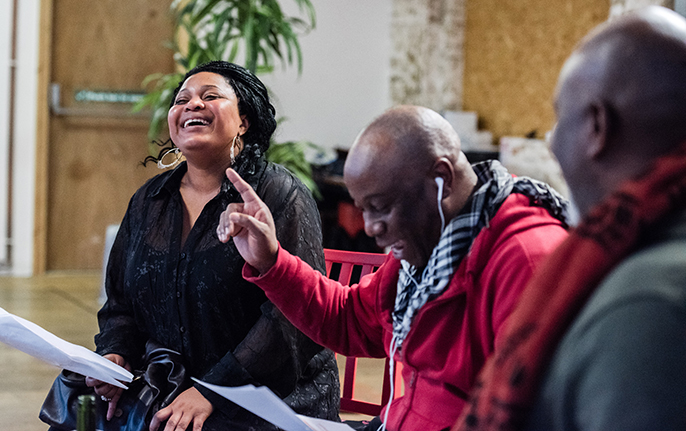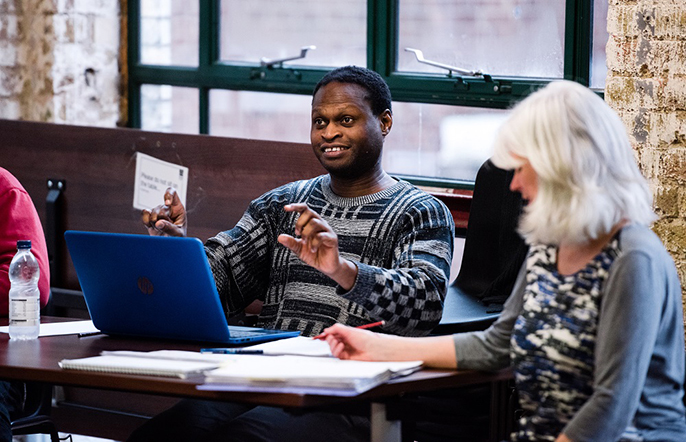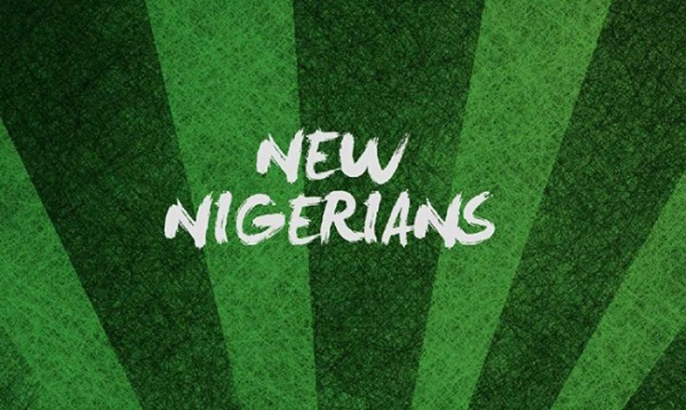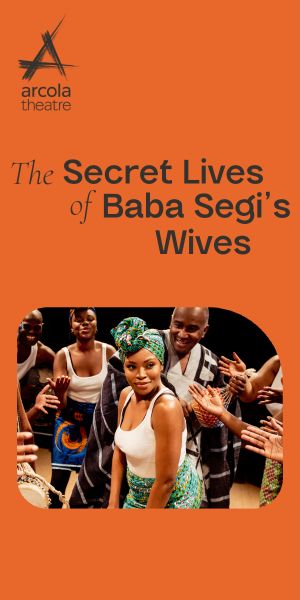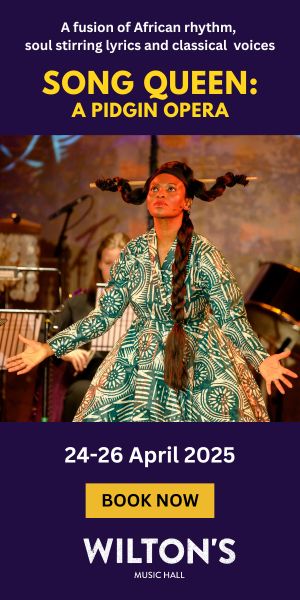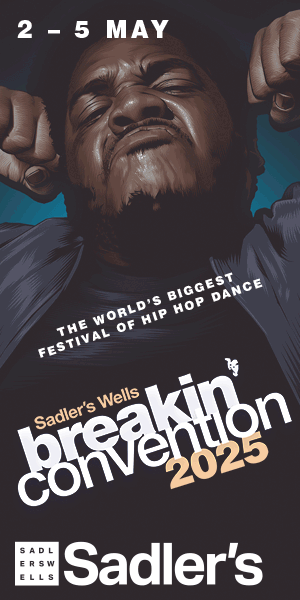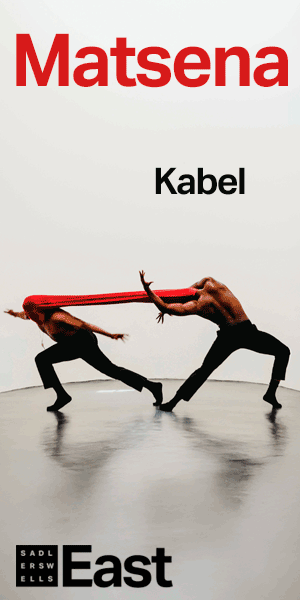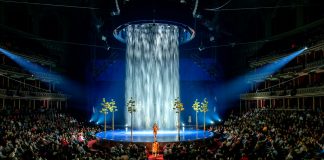New Nigerians (see listing) is a new play written by playwright Oladipo Agboluaje (read interview) (The Estate, Iya Ile/First Wife), and directed by Rosamunde Hutt playing at the Arcola Theatre as part of their Revolution season. The play is an entertaining, witty, political satire about the state of populism in Nigerian politics.
The play has a small cast of three who play six different characters, seven if you count a small cleaner’s appearance. Credit must go to the actors, Tunde Euba, Gbemisola Ikumelo, and Patrice Naiambana for managing to juggle different faces, which in itself is an attribute recognised in international politics, especially in Nigeria.
The play works at revealing the social networking side of politics and how the working rule of ‘it’s who you know not what you know’ applies so strongly in African politics.
Strong, albeit flexible, performances were given by each actor, Naiambana as Greatness was as loud, confident and charismatic as you would expect any aspiring politician to be, especially an African one. His ability to reveal himself not only as a political activist but also as a real man with vulnerability and personal issues drew the audience into the play, as did his comic ability in directly engaging the audience into some of the funnier happenings onstage.
I noted Euba’s ability at juggling the accents familiar with the Northern part of Nigeria to the South-Eastern region whilst maintaining the quintessential face of a selfish politician who must put himself first at all costs and I was impressed. I must give a special mention to the only female lead, Ikumelo, who gave a veritable performance as both wild child vice-president candidate, Chinasa, and well-mannered ex-wife, Grace. She portrayed both characters with passion, enthusiasm and raw honesty.
Nigerians are good at making people laugh and this play achieved many laughs from the audience.
The play works at revealing the social networking side of politics and how the working rule of ‘it’s who you know not what you know’ applies so strongly in African politics. It also shined a light on the darker side of Nigerian politics controlled by money, sex and power. I enjoyed the political element of the play although at times I felt lost in the barrels of political speeches especially from the male lead, there was a lot of ‘speechifying’ from the lead character aptly named Greatness, the left wing socialist who wants to make a positive change for his country and also for himself. The main belief in many of his speeches is a great one, fairness and justice for all citizens. This is a political idea that applies to any country in the world right now considering all the political madness and injustices that we are seeing in the real world, (see Brexit, President Trump and Syria).
Nigerians are good at making people laugh and this play achieved many laughs from the audience. My only reservation was that the serious element of the politics in the play was sometimes lost amongst all the laughter. I know that a satire is meant to be a comedic mockery and this was achieved but I think that the play would have had a stronger mental impact if there had been more focus and clarity in the political outcomes.
Throughout this play I could see that Agboluaje had written it with a Nigerian audience in the forefront of his mind; this is indicative in the language, music and the eccentric behaviours of the characters, which were so recognisable to myself as a Nigerian that I found myself muttering ‘typical’ so many times throughout the performance. Even so the play can be understood and enjoyed by all audiences from any background. New Nigerians reveals the battle between new activism and old ideologies and how both sides must find a way to keep up with the ever-changing world. I would recommend this play for anyone who enjoys political debate and witty banter, but be warned it is for adults only!























